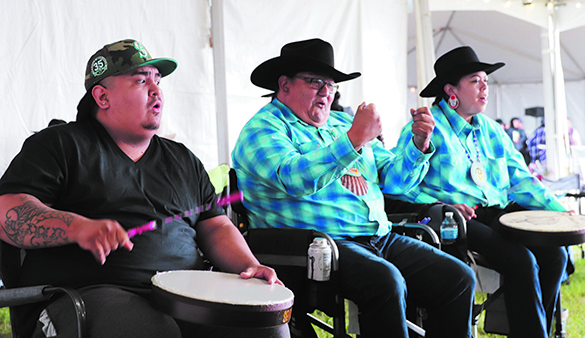
By Kalvin Valdillez, Tulalip News
For nine consecutive years, the Tulalip Tribes hosted an annual Stick Games Tournament at the start of every summer. Typically held during the first weekend of June, the tournament takes place at the Tulalip Amphitheater and attracts tribal members from all throughout the Northwest region, including many families hailing from First Nation Bands in British Columbia.
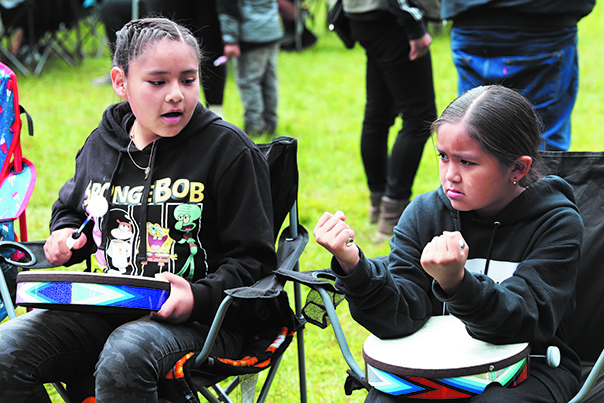
The worldwide pandemic put most social gatherings and events on-hold to limit the spread of the communicable disease. And to the dismay of many lifelong stick games players, the tournament was canceled in both 2020 and 2021. The cancellations, however, made the return of the tournament all the more exciting as hundreds of Natives showed out for this year’s competition during the weekend of June 3rd-5th.
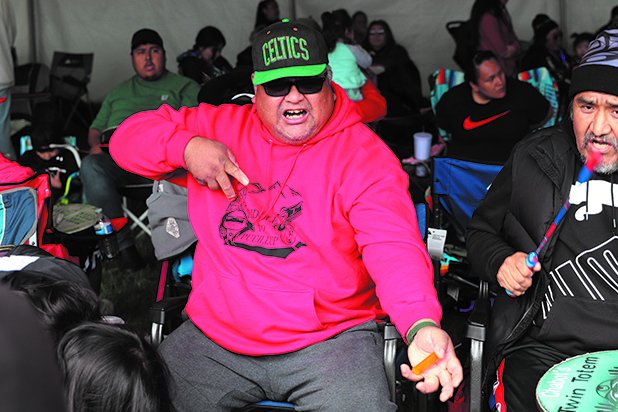
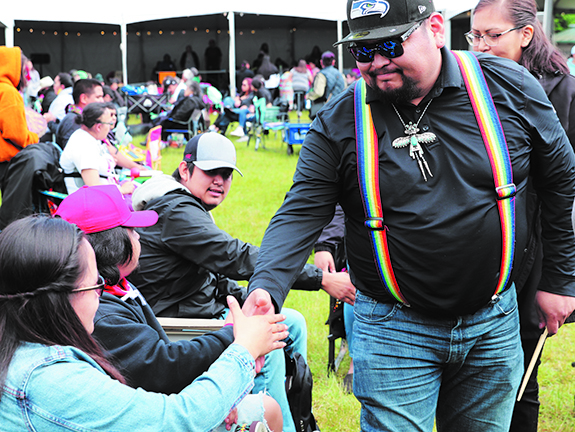
“It’s nice to visit with family who I haven’t seen in forever,” exclaimed Spokane tribal member and Tulalip community member, Marsella Gonzalez. “I played all weekend. I used to play every year before COVID happened, so I haven’t played in a long time. It’s fun and enjoyable to gather together again and play against one another, as well as getting to know more people from other tribes. It’s great to see everybody out and about and enjoying each other’s company.”
Stick games, also known as bone games, hand games, slahal, and lahal, is a traditional game that was gifted to the coastal people in ancient times. The game was taught to the people by the animals of the region as a means to settle a multitude of intertribal disputes regarding hunting and fishing grounds, as well as to prevent warfare between tribes. For generations tribal nations have passed down the knowledge of how to play the game, which requires the skill and mastery of deception and distraction.

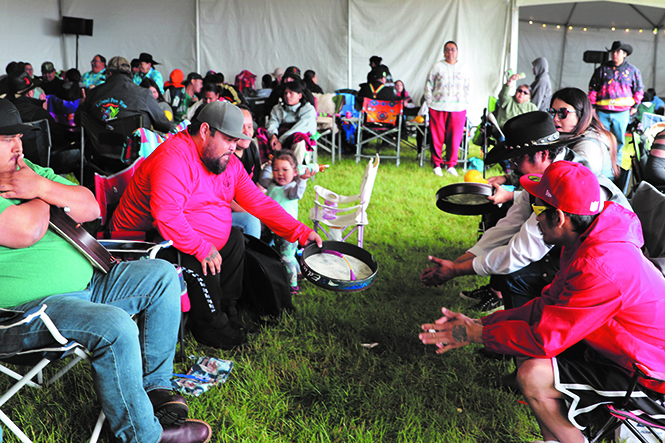
Gameplay requires two opposing teams, consisting of three to five players, to face-off against each other. The game pieces, which includes a set of bones and sticks, are discreetly distributed amongst the players on one team. The opposing team must correctly guess where the bones are hidden and how many pieces the player has concealed in their hands. The sticks are used to keep score. The team with their bones in-play, sing traditional family songs in an attempt to distract the other team from seeing who the bones are given to. The team that has the most correct number of guesses wins the game and advances to the next round.
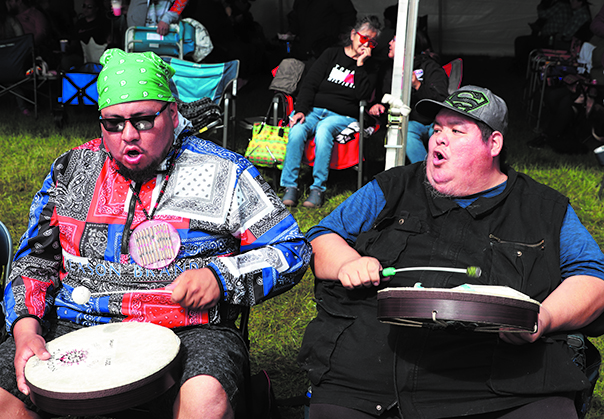
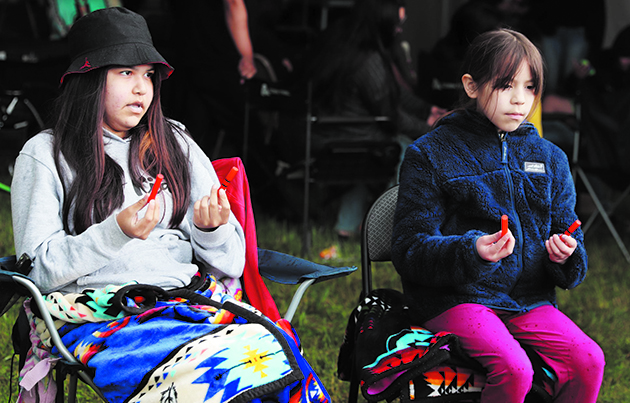
There are a number of unofficial game pieces as well that helps teams immensely during a stick game tournament, such as foldable lawn chairs so that teams can quickly set-up against their opponents and move and play about the grounds; pull-over hoodies so a player can hide the bones in their front pockets, and also bandanas for the same reason. And finally, traditional hand-drums so your team can sing loud and distract the opposing team while the bones are passed amongst the team.
Said Marsella, “I love hiding the bones. It’s nerve-racking but it’s exciting because you’re trying to keep them hidden so well. I was taught not to look people in the eyes when playing, and I did it twice this weekend and got caught each time. The game is amazing to play. Next, I have to learn more songs.”
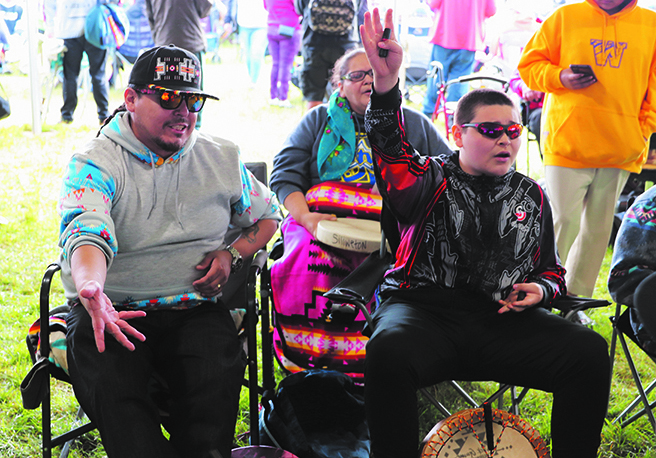
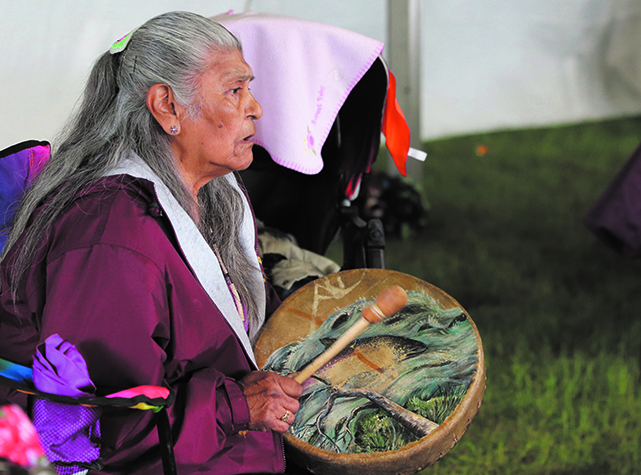
Another highlight of the tournament is shopping and supporting local Indigenous artists, chefs, and entrepreneurs as numerous vendors set-up shop at the amphitheater each year. Several Tulalip tribal members were in attendance this year, selling their trademark goods to event-goers including Josh Fryberg and family who sold hoodies and smoked salmon, Jared Parks sold his signature sweet-and-salty kettle corn, Natosha Gobin had natural salves and balms available for purchase, and Winona Shopbell-Fryberg and Santana Shopbell-Proehl had a selection of beadwork for sale.
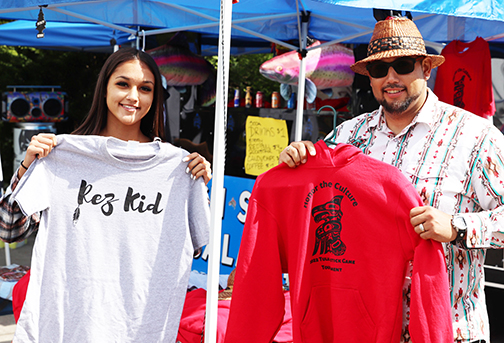
The participants of the Tulalip Stick Games Tournament compete for the chance to take home a cash prize. This year many cash prizes were awarded, including the grand prize of $50,000. In addition to the main competition, several mini-tournaments are held throughout the weekend such as the three-man tournament and the kid’s tournament, and many rounds are also played during open-games on the opening day of the weekend-long event.

“I am a 5th generation stick game player, it’s been a part of my family since the beginning of time pretty much,” said young Lummi tribal member, Tavis Washington Jr. “It feels great to come out after the pandemic and see all the people I usually see at these kind of events, and to meet new people too. My favorite part of the game is winning! Shoot – I like when my team or my family wins a lot. But it feels like it’s been forever since we last played and I am just happy to be back here playing at Tulalip.”